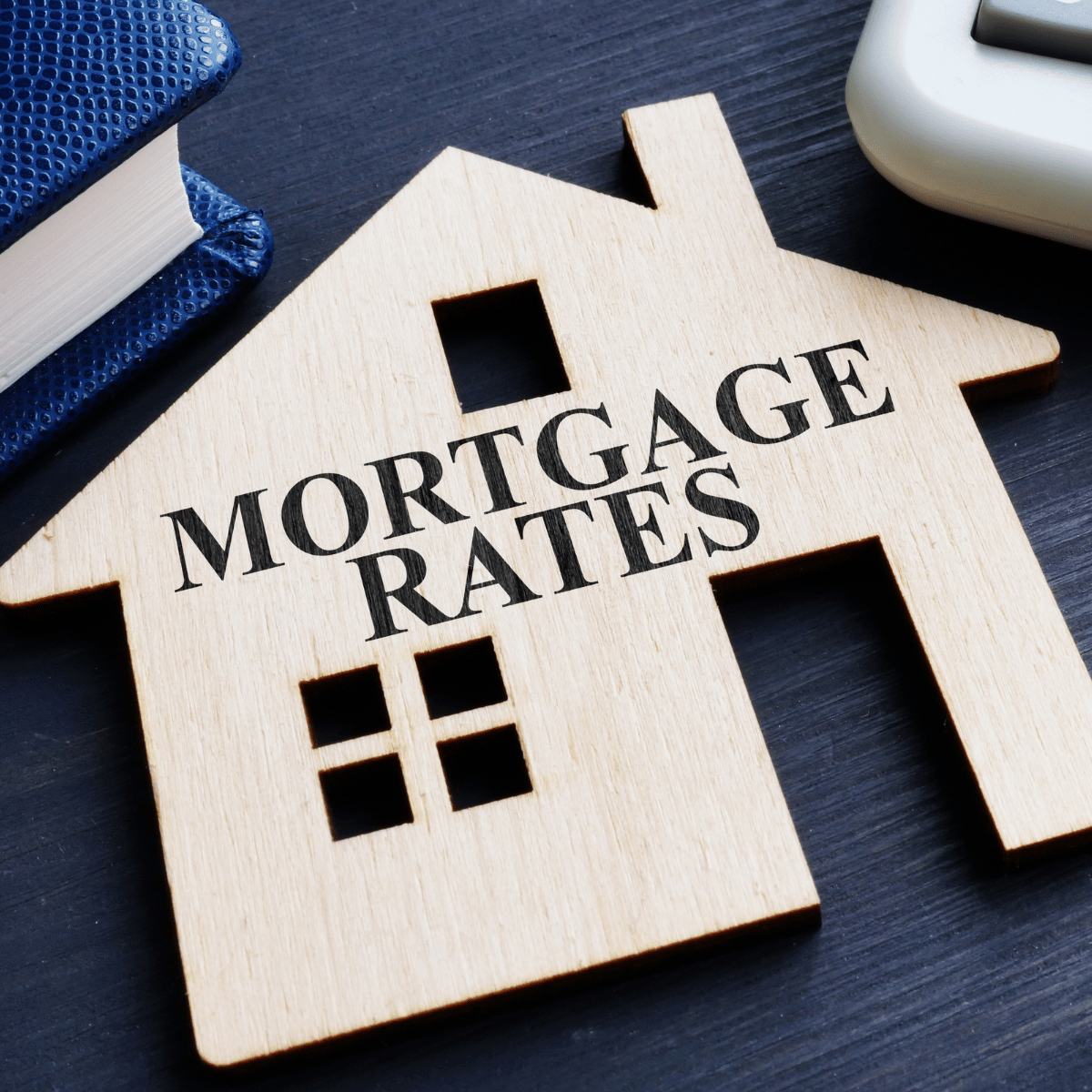
In recent years, inflation has taken center stage in economic discussions worldwide. As consumer prices rise and purchasing power declines. The homebuyers, homeowners, and investors find themselves navigating a complex landscape of financial challenges and opportunities. This blog post delves deeply into the intricate relationship between them. And exploring how each influences the other, what implications arise, and how individuals can make informed decisions regarding their financial futures.
Understanding Inflation and Mortgages Then
Before exploring the connection of inflation and mortgages, it’s crucial to understand what inflation is and how it is measured. Inflation is an economic term that refers to the general increase in prices and the subsequent decline in purchasing power of money. It can result from various factors, including increased demand for goods and services, higher production costs, or expansions in the money supply.
Inflation is typically measured using indices, the most common being the Consumer Price Index (CPI) and the Producer Price Index (PPI). The CPI measures the average change over time in the prices paid by urban consumers. For a basket of goods and services, including food, clothing, and housing. On the other hand, the PPI measures the average change in selling prices received by domestic producers for their output.
The Role of Central Banks in Inflation and Mortgages
One of the critical players in managing inflation and mortgages is the country’s central bank, such as the Federal Reserve in the United States. Central banks aim to maintain economic stability by targeting a specific inflation rate, typically around 2%. When inflation rises above this target, central banks may institute measures such as increasing interest rates to cool the economy. Conversely, if inflation is too low, they might lower interest rates to stimulate spending and investment.
The Connection Between Inflation and Mortgages Rates
-
Interest Rates and Borrowing Costs
The most significant connection between them lies in interest rates. When inflation rises, central banks may increase interest rates as a countermeasure. Higher interest rates increase the cost of borrowing, which has a direct impact on mortgage rates.
For example, if inflation accelerates, central banks may hike the federal funds rate to slow down the economy. As a result, lenders typically respond by raising mortgage interest rates to maintain their profit margins. This connection means that borrowers are looking to secure a mortgage at the prevailing interest rates. May find themselves facing higher monthly payments when inflation is on the rise.
Conversely, in an environment of low inflation, central banks may lower interest rates to foster economic activity. This scenario is beneficial for homebuyers as borrowing costs decrease. That allows for lower monthly payments and subsequently makes homeownership more accessible.
-
Fixed-Rate vs. Adjustable-Rate Mortgages (ARMs)
Understanding the type of mortgages you’re dealing with is critical when addressing inflation’s impact.
- Fixed-rate mortgages allow borrowers to lock in a specific interest rate for the life of the loan, typically ranging from 15 to 30 years. This feature can be advantageous in high-inflation environments. Since the borrower continues to pay the same rate even as market rates increase.
- Conversely, adjustable-rate mortgages (ARMs) have interest rates that fluctuate after an initial fixed period. When inflation prompts lenders to adjust rates upwards. Borrowers with ARMs may see their monthly payments increase significantly. Over time, this can lead to financial strain if borrowers are unprepared for the elevated costs.
Effects on Housing Demand in Inflation and Mortgages
-
Purchasing Power and Affordability
Rising inflation impacts consumer purchasing power. As prices soar, the real value of consumers’ incomes tends to decline. Consequently, potential homebuyers may find themselves unable to afford the same homes. They could have just a year or two earlier, leading to a decrease in overall housing demand.
This decrease in demand can lead to a slowdown in home price appreciation. Which may stabilize or even reduce housing prices in extreme cases. However, significant inflation often results in a counterintuitive effect. Where limited housing inventory drives prices higher despite declining purchasing power. And creating a more competitive buyer’s market.
-
Investor Behavior
Developers and investors in real estate also respond to inflationary pressures. Rising construction costs can deter new development projects. That will lead to a contraction in housing supply. When combined with sustained demand, this phenomenon can exacerbate housing shortages. And drive prices higher, providing investors with an opportunity for capital appreciation.
Additionally, savvy real estate investors often view real estate as a hedge against inflation. As property values and rents typically rise alongside inflationary pressures. Investors may find real estate to be a more reliable avenue for maintaining purchasing power compared to cash or fixed-income investments. That may yield lower returns in a high-inflation environment.
Impact on Current Homeowners in Inflation and Mortgages
-
Home Equity and Refinancing Opportunities
Homeowners with fixed-rate mortgages may find themselves in a favorable position amidst inflation. As inflation raises the cost of goods and services, the value of their property may also appreciate, leading to higher home equity. This increase in equity can provide homeowners with opportunities. To refinance into a mortgage that aligns more with current interest rates, provided they are lower than their existing fixed-rate mortgage.
Additionally, leveraging home equity through a home equity line of credit (HELOC) or cash-out refinance. It can become a strategic way to access needed funds for debt consolidation, home improvements, or investment opportunities without selling the property.
-
Market Stability and Retention
While rising inflation can bring about uncertainty, it can also encourage homeowners to remain in their properties rather than selling. Homeowners with low fixed-rate loans may hesitate to sell their homes in a high-inflation environment. Where they would face higher mortgage rates on new purchases. As a result, this trend may contribute to lower housing inventory, further buoying existing property values.
Future Considerations for Homebuyers in Inflation and Mortgages
As potential homebuyers consider their options in an inflationary climate, several factors come into play:
-
Locking in Low Rates
If inflation is expected to remain high, potential buyers may want to act swiftly to secure a mortgage with a fixed-rate. Locking in a low rate before it potentially rises can save thousands over the life of a loan. Even a slight increase in rates can dramatically affect monthly payments, so timing can be critical.
-
Budgeting for Future Payments
Given the uncertainty surrounding adjustable-rate mortgages. Buyers should carefully assess their ability to manage potential increases in payment amounts. Those considering ARMs should evaluate their financial resilience. And be prepared for changes that could arise after the initial fixed period.
-
Broader Economic Trends
Homebuyers should also monitor broader economic trends, including employment rates, wage growth, and overall economic activity. If sustained economic growth accompanies inflation, consumers may find themselves with more disposable income. Which could lessen the burden of rising mortgage payments.
Long-Term Outlook of Inflation and Mortgages
While inflation and mortgages present challenges, it’s important to maintain a long-term perspective regarding real estate and mortgages. Historically, real estate has been a reliable avenue of wealth accumulation. Properties tend to appreciate over time, often outpacing inflation rates. Therefore, individuals who hold onto their investments. For the long run may ultimately benefit from real estate’s potential to serve as an inflation hedge.
Additionally, with historical data showing that real estate values increase over time. Individuals who choose to invest in property can create a robust portfolio. That supports their financial future, even when facing periods of high inflation.
Conclusion
The connection between inflation and mortgages is complex and multifaceted, influencing various aspects of the housing market. Understanding this dynamic can empower consumers and investors. Alike to make informed decisions about their financial futures.
For current homeowners, the long-term benefits of a fixed-rate mortgage may offer stability in uncertain times. While potential buyers must remain proactive about locking in rates and assessing their borrowing options. Ultimately, maintaining a keen awareness of inflation trends and economic indicators. It will help individuals navigate the intricate relationship between them.
In the end, whether you’re a homeowner, a potential buyer, or an investor, understanding the implications of inflation on your financial decisions. It will enable you to take steps towards a prosperous future—one where your investments can thrive amidst economic fluctuations.
As always, consider consulting with financial advisors, mortgage brokers, and real estate professionals. Who can provide tailored insights based on your unique circumstances. By being informed and prepared. You can navigate the complexities of a high-inflationary environment and secure your financial well-being for years to come.
KEYWORD:
INFLATION AND MORTGAGES
META DESCRIPTION:
Discover how inflation impacts mortgage rates, housing demand, and investment decisions to help you navigate today’s complex real estate market.
QUESTIONS:
- How does inflation affect mortgage rates?
Inflation typically leads to higher mortgage rates as lenders adjust to maintain purchasing power.
- What impact does inflation have on housing demand?
Inflation can decrease housing demand as rising costs make homeownership less affordable for buyers.
Read Our latest Blog
Self Employed and Looking for a Mortgage?
Why You Should Consider Local Mortgage Lenders Over Big Banks




